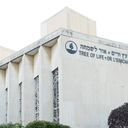- Pennsylvania Commission to Study Wrongful Convictions Pennsylvania has convened a commission of judges, prosecutors, defense attorneys, law enforcement officers and victims’ advocates to study the causes of wrongful convictions and make recommendations for preventing them in the state. Forensic errors, mistaken eyewitness identifications and false confessions have led to wrongful convictions around the nation, including 9 people from Pennsylvania who have been exonerated by DNA evidence. The commission of 40 members was sponsored by Pennsylvania State Senator Stewart Greenleaf and will be chaired by Duquesne University law professor John T. Rago, who heads the Cyril H. Wecht Institute of Forensic Sciene and Law. Among those on the panel are Philadelphia District Attorney Lynne Abraham, Allegheny County District Attorney Stephen Zappala, Jr., public defender Michael Machen, police commissioner Charles Moffat, Common Pleas Senior Judge Robert E. Colville, as well as an exonerated death row inmate, a Johnstown priest, and a representative from the state attorney general’s office. The committee will review the cases of 198 DNA exonerees around the country to identify the most common causes of wrongful convictions. It will then issue a series of policy change recommendations that attempt to address the problems they identify. Rago, who said he hopes the review will make the state’s criminal justice system “as best as human beings can,” noted, “Justice is served when a guilty person is convicted, but justice is also served when an innocent person is exonerated. And certainly justice is not served by convicting an innocent person.… With 2.5 million people incarcerated in the U.S., can anybody with a straight face say that they’re all guilty? No more than you could say they’re all innocent.” Rago said he proposed the study commission to Senator Greenleaf after hearing of several exonerations in Pennyslvania, including the release of Nicholas Yarris after he spent 21 years on Pennsylvania’s death row for a crime he did not commit. The commission held its first all-day meeting in Harrisburg on March 29. (Pittsburgh Post-Gazette, March 31, 2007).
- Pennsylvania Commission to Study Innocence Cases Pennsylvania State Sen. Stewart J. Greenleaf, chairman of the Senate Judiciary Committee, announced the formation of an advisory committee to examine the cases of people who have been wrongly convicted in the state. The commission will consist of about 30 members drawn from the state’s prosecutors, defense attorneys, judges, corrections officials, police, victim advocates and others. The commission will report its findings and recommendations to the Senate by Nov. 30, 2008. “[W]e’re finding people on death row and otherwise who have been mistakenly convicted of crimes,” Greenleaf said. “All too often, we forget that justice is also served when the innocent are acquitted.” Among those exonerated in the past was Nicholas Yarris, who became the first person freed from the state’s death row by DNA testing when he was released in January 2004. Yarris had spent 22 years in prison after he was convicted of the rape and murder. (Associated Press, Nov. 28, 2006).
- On July 10, 2002 Pennsylvania Governor Schweiker signed legislation that allows inmates access to DNA testing. The bill, which unanimously passed both houses of the General Assembly, will allow inmates to request DNA testing if it might have a bearing on the verdict in their case and if the DNA technology was not used at the time of their conviction. The testing may also be sought if the inmate’s attorney did not request the testing at trial, prior to January 1, 1995. Pennsylvania is now one of 27 states that allow inmates to request testing of crime scene evidence that could lead to exoneration. “We shouldn’t be in the position of punishing people who are innocent,” said the bill’s sponsor Stewart J. Greenleaf (R — Montgomery). (Philadelphia Inquirer, 7/11/02)



